datacenter
Latest

NordVPN admits to 'isolated' server breach in Finland
Virtual private network provider NordVPN has confirmed an attacker breached one of its servers, though the tangible impact of the breach seems to be pretty limited. There were no user activity logs on the server -- the company says it doesn't track, collect or share people's private data. There was also no way for the hacker to access usernames and passwords and nor could the attacker have decrypted VPN traffic to other servers.
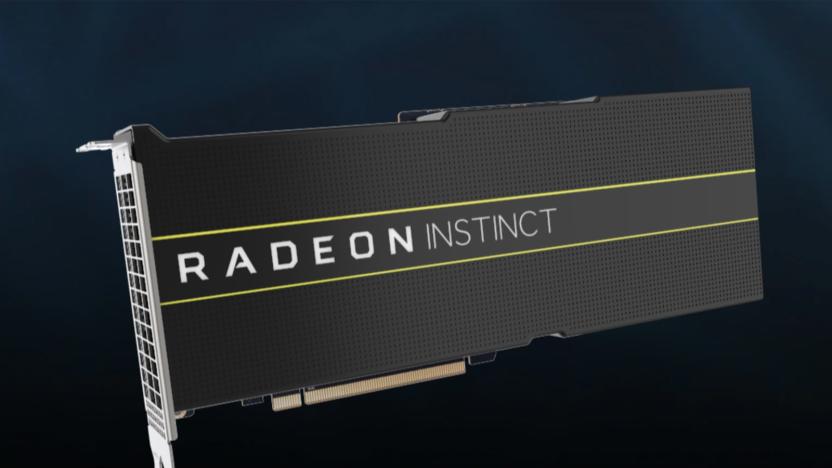
AMD launches the first 7nm GPUs, but they're not for you
AMD is following through on its promise of releasing 7-nanometer GPUs -- not that you can use one yet. The company has formally launched Radeon Instinct MI50 and MI60 cards that use the denser, more efficient chip technology to accelerate specialized computing tasks like AI, cloud services and scientific calculations. The MI60 in particular is billed as the fastest double-precision accelerator of its type, pumping out 7.4 teraflops when crunching 64-bit floating point data. Both boards pack very high-bandwidth (up to 1TB/s) HBM2 memory and can work together in "hive rings" of up to four GPUs thanks to 200GB/s peer-to-peer links.
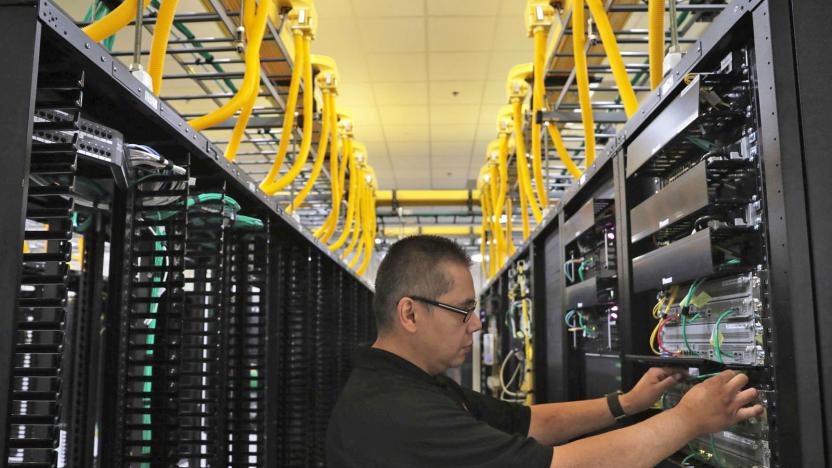
China reportedly carried out a 'hardware hack' on Apple and Amazon (updated)
Data center hardware used by Apple and Amazon may have been fitted with surveillance micro-chips by Chinese server company Super Micro, claims Bloomberg in a new report. Almost 30 US companies reportedly fell prey to the "attack," with the chips used to snatch intellectual property and trade secrets, according to Bloomberg's anonymous government and corporate sources. The report notes that no "consumer data is known to have been stolen."
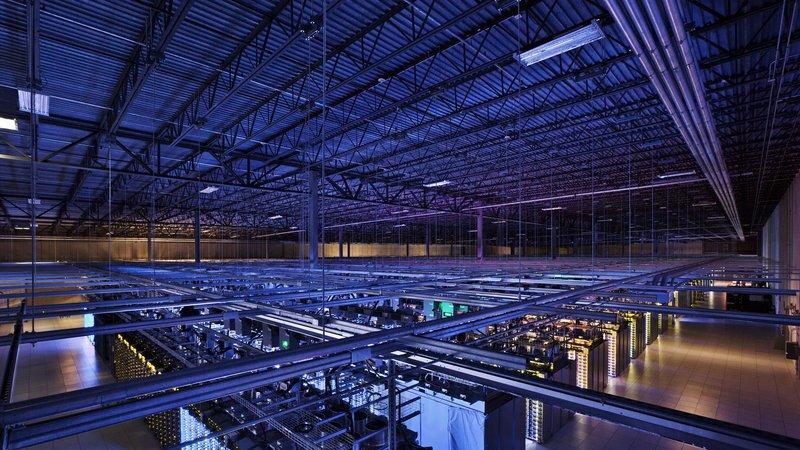
Google is using AI to run its data center cooling systems
Google's data centers hold thousands of servers and they power everything from Google Search to Gmail to YouTube. But those data centers need to be kept cool in order for those servers to run reliably. A couple of years ago, Google began applying AI to its data center cooling systems and it offered system controllers recommendations about how to boost energy efficiency while maintaining optimal temperatures. Now, Google says its AI is running the show.
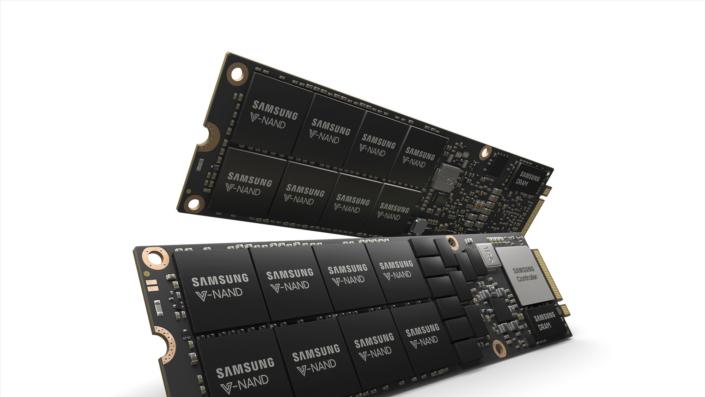
Samsung now has an 8TB SSD thanks to 3D memory tech
Data centers are about to get a lot more storage efficient. Samsung has launched the industry's highest capacity NVMe solid state drive (SSD) that packs an 8TB punch in an ultra-small footprint of just 11cm x 3.05cm -- twice the capacity of SSDs commonly used in hyper-scale server designs and slim line laptops.
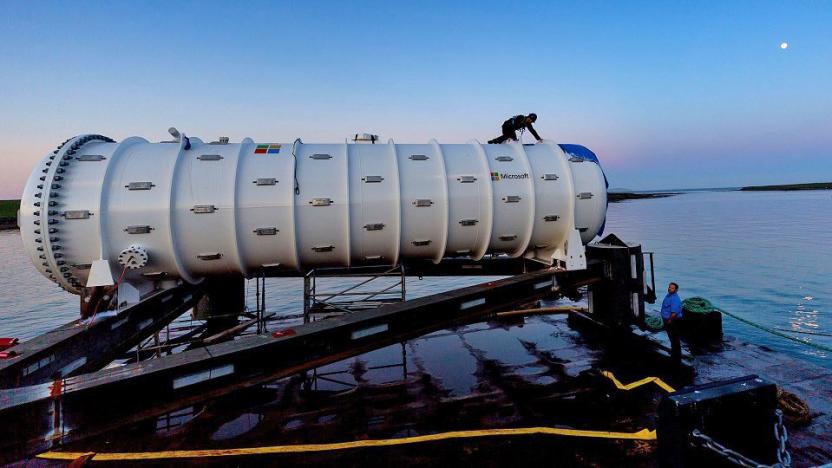
Microsoft’s deep sea data center is now operational
Data centers are hot, noisy and usually inefficiently located. Microsoft's solution? Put them at the bottom of the sea. Following initial prototype testing, the company's years-long Project Natick is finally delivering Microsoft's vision of sustainable, prepackaged and rapidly deployed data centers that operate from the seafloor. Yep. Underwater.
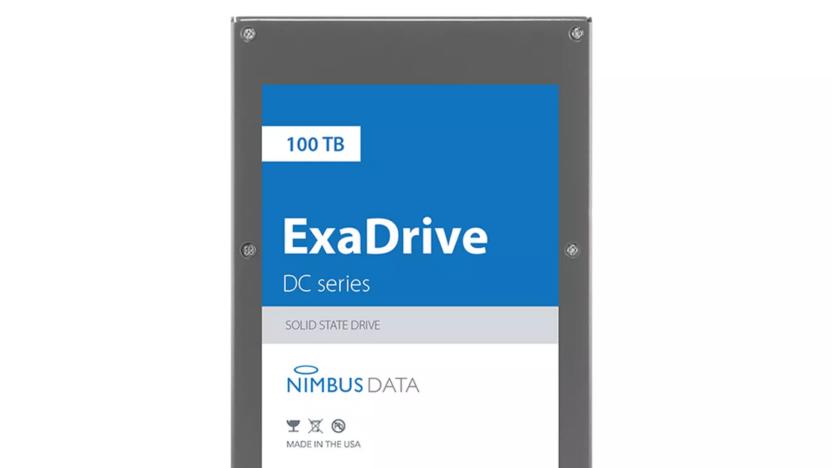
World's largest SSD capacity now stands at 100TB
That didn't take long -- just a month after Samsung released a record-setting 30TB SSD, a rival has claimed the throne. Nimbus Data has unveiled the ExaDrive DC100, which crams 100TB of 3D flash memory into a standard 3.5-inch SATA form factor. For context, that's 20 million songs (if you assume 5MB each) in a device small enough to fit into your home PC. Not that you're about to buy one, unfortunately.

Daimler and HPE want to power green data centers with hydrogen
Hydrogen fuel cells have mainly been used to power vehicles so far, but they could soon find another use: the server farms powering your internet services. Daimler, HPE, Power Innovations and the National Renewable Energy Laboratory are expanding fuel cell use to "micro-grids" inside data centers. Solar and wind power would provide the bulk of the energy, but fuel cells would fill in the gap when power demand is too high or an outage leaves no other choice. Companies wouldn't have to rely quite so heavily on diesel generators or other not-so-eco-friendly backups to cope with demand. And unlike battery backups, there's no limit -- the fuel cell can keep running as long as there's hydrogen.
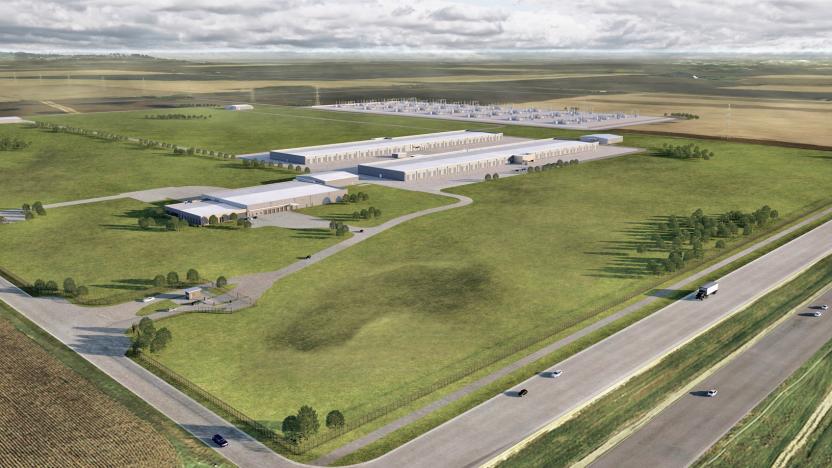
Apple’s Iowa data center could make Siri better in the US
Apple has been building data centers powered by renewable energy across the US for some time, now, with facilities in North Carolina, Arizona and Reno. The tech company plans to build it's latest data center -- a 400,000 square foot facitlity -- in Waukee, Iowa by 2020. Construction should begin early next year with the resulting center aimed at supporting users of Apple's online services in North America. "Our new data center in Iowa will help serve millions of people across North America who use Siri, iMessage, Apple Music and other Apple services -- all powered by renewable energy," said Apple CEO Tim Cook in a statement.
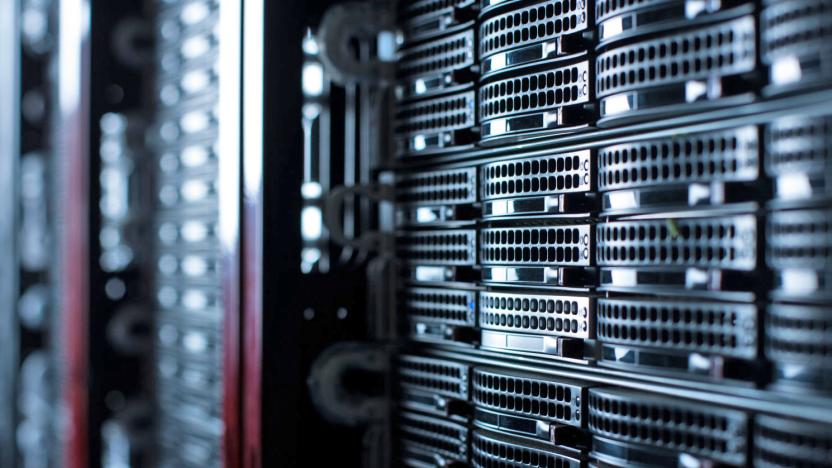
Apple builds data center to obey Chinese cybersecurity rules
Apple is building its first data center in China in a bid to speed up services for local users and adhere to convoluted cybersecurity laws introduced by the country last month. According to Chinese officials the regulations, which state that all foreign firms must store their data in China, are designed to counter the threat of cyberattacks.
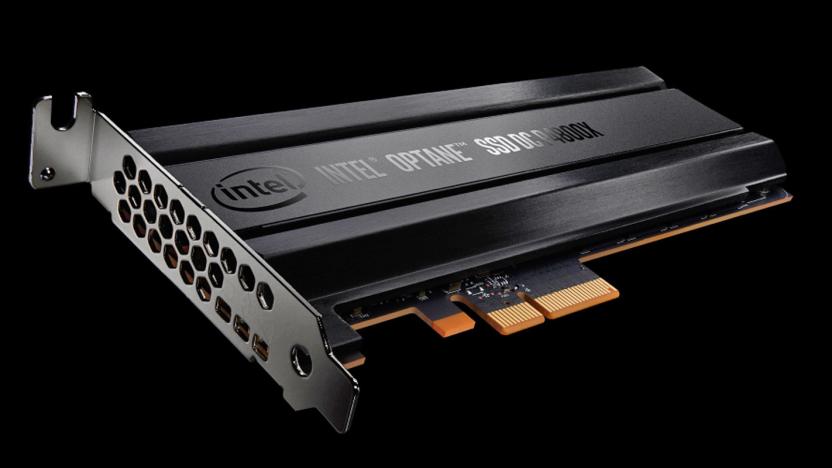
Intel's first hyper-fast 3D drive is meant for servers
At last, Intel is making a stand-alone drive based on its extremely fast 3D storage technology... although you're probably not about to pick one up yourself. The chip maker has unveiled the Optane SSD DC P4800X, a drive destined for the PCI Express or NVMe slots in servers. It only has 375GB of space, but its extremely low latency (typically under 10µs) and 2GB/s throughput means that it can serve as either a memory cache or storage. If you're involved in high-performance computing, online shopping or other categories obsessed with gobs of RAM and rapid turnaround times, this is theoretically your dream device.
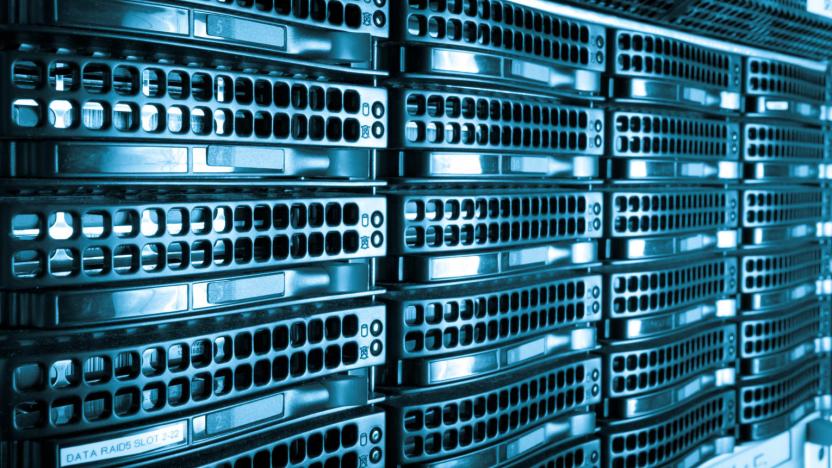
Greenpeace slams tech giants over dirty data centers
Greenpeace has published its latest report on what powers the internet, and who's working hard to keep our tweeting sustainable. The nonprofit began researching the energy consumption of the IT sector back in 2009, estimating the environmental cost of every Netflix video we watch. It describes data centers as the factories of the 21st century and wants to see companies move across to renewables to keep them going. The report puts Apple at the top of the pile for the third year running -- a far cry from when it came in last place, back in 2011.

Apple wants to build more of its data center tech in Arizona
Remember how Apple salvaged that defunct sapphire plant in Arizona by turning it into a data center? That facility might soon become more useful... if not as useful as you might think. Apple has proposed expanding the Mesa location to make data server cabinets. While it's not initially clear why it's making the move, a Business Insider source claims that this is about consolidating data center production. The company normally builds the technology on-site at its data centers, the insider says, and it now wants to switch to a centralized model where it ships everything from Arizona.

ING Bank's main data center was shut down by a loud noise
Members of ING Bank found themselves unable to use their debit cards this weekend due to a completely unexpected technical failure: it was just too dang loud. More specifically, a loud noise caused by a fire extinguisher test knocked out a few dozen hard-drives at the bank's main data center in Bucharest Romania. It's an uncommon, but not unknown phenomenon -- sound causes vibration, and hard-drives hate being jostled.

Google tag-teams with Facebook on eco-friendly servers
Google recently friended arch-rival Facebook's Open Compute Project (OCP) to help it with power-sucking data centers, and that relationship is already paying off. Google revealed its first contribution to the project, Open Rack 2.0, a design for shallow, 48V racks that fit into data centers with limited space. Google has used a similar spec since 2010, and "saved millions of dollars and kilowatt hours" compared to 12V systems, it said.
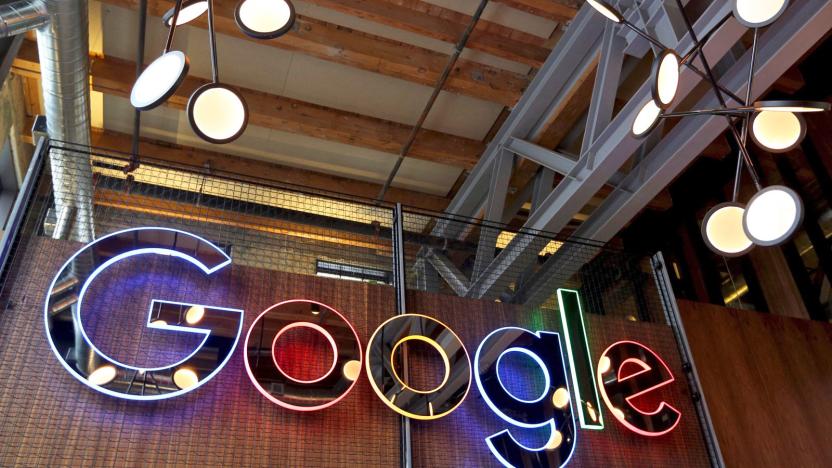
Google used DeepMind AI to cut its power bill
Google's grand experiment in using artificial intelligence to save power is paying off. The search firm's Demis Hassabis tells Bloomberg that the DeepMind AI has cut electricity use at Google data centers by "several percentage points" thanks to its extra-efficient use of equipment, such as cooling systems and windows. It's not certain just how much energy the smart code is saving, but Google used slightly over 4.4 gigawatt-hours in 2014 alone -- even a small dent in that consumption could easily save hundreds of millions of dollars. That pricey DeepMind acquisition is likely paying for itself.

Google dolls up its data centers with a mural project
Google's data centers are massive buildings nestled in cities around the world, and most of them are fairly drab from the outside. After all, it's what's inside that counts. However, Google is in the process of sprucing up these sad exteriors with the Data Center Mural Project. So far, data centers in Mayes County, Oklahoma, and Saint-Ghislain, Belgium, have received murals from artists Jenny Odell and Oli-B, respectively. Each of the paintings attempt to visualize the actual function of the data centers -- mainly, hosting, distributing and securing online information.
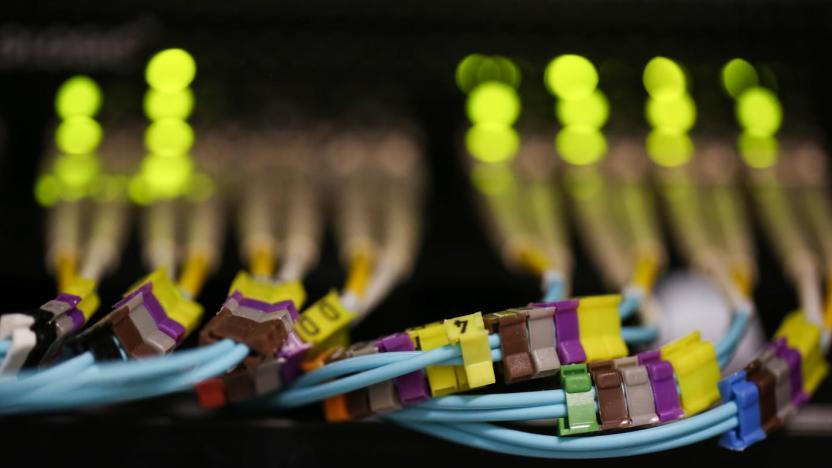
Scientists push a record 57Gbps through fiber optic lines (update)
Need proof that the limits of fiber optic technology have been shattered? You just got it. University of Illinois researchers report that they've set a record for fiber data transmission, delivering 57Gbps of error-free data. And importantly, they sent the data at room temperature -- they didn't have to cool things down to keep those bits going. Even when things got toasty (185F), the technology could still deliver a brisk 50Gbps.
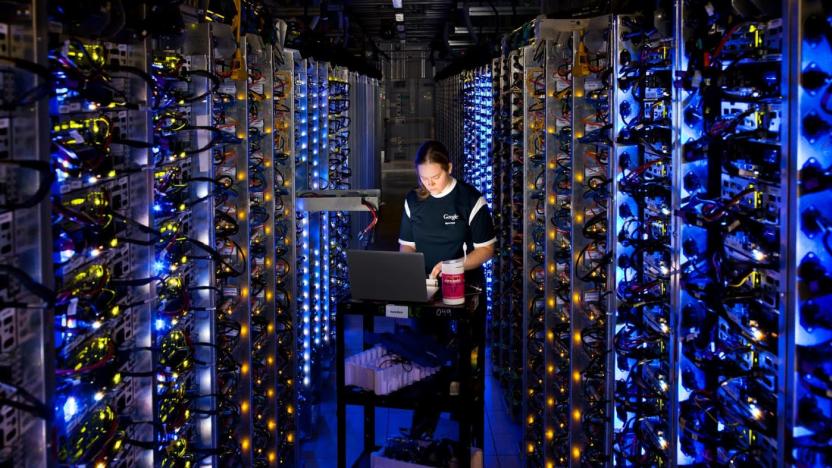
Take a 360-degree video tour of Google's Oregon data center
Google's latest 360-degree video provides a virtual tour of its data center in The Dalles, Oregon. We've seen glimpses of Google's server farms before, through Street View and other high-res photography, but this new upload offers a better sense of immersion. It's also presented by Sandeep, one of Google's developer advocates, who explains each room and interviews some of the data center staff. The video is highly curated, but there are some fascinating shots and tidbits, including a biometric eye scanner that every employee has to pass through. There's also a monstrous hard drive shredder and a look at Google's colorful mechanical equipment room.
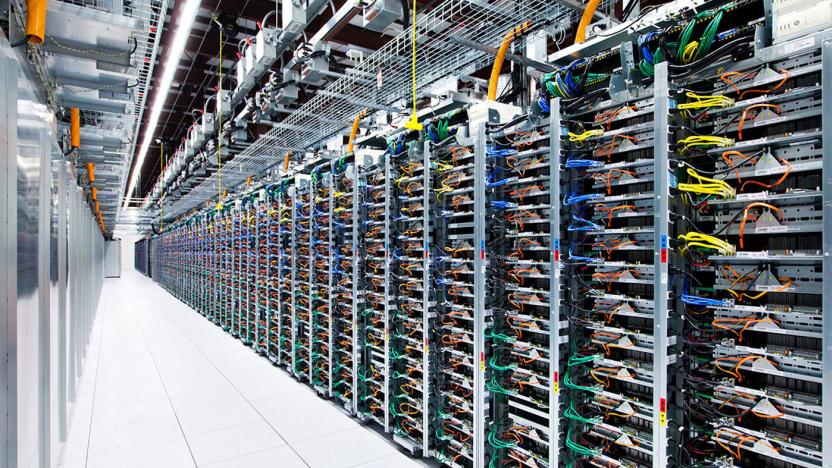
Google joins Facebook's effort to reinvent the data center
Facebook and Google aren't the best of friends, but they're willing to make exceptions for the right causes: Google has joined Facebook's Open Compute Project in a bid to improve data centers everywhere. It's starting off by contributing a new server rack spec that both improves power handling and lets project members' racks slip into Google computing farms. The move isn't entirely surprising, even though it involves an arch-rival. Google is no stranger to building its own hardware -- it's just offering some of that know-how to the tech industry in hopes of getting some upgrades in return.










